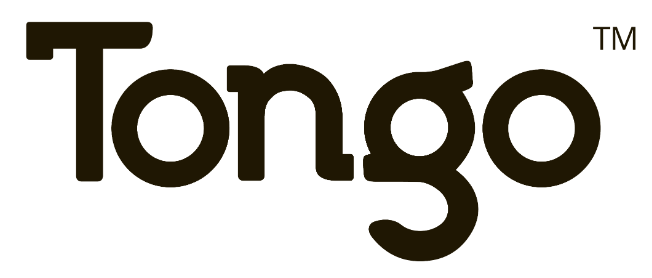Unlocking Financial Success: Proven Money Management Tips for Real Estate Agents
With the right financial management strategies, real estate professionals can unlock new levels of success and security. This guide provides practical money management tips tailored specifically for agents. From effective budgeting to maximizing income potential, these essential tips will help navigate the world of finance when you’re a commission-based professional. Whether you're a seasoned agent or just starting out, these strategies will serve as your trusted path to financial stability and growth.
Budgeting for Real Estate Agents
Creating a Personalized Budget
Crafting a personalized budget is essential for effective financial management, especially for real estate agents with fluctuating incomes. Start by listing all your monthly expenses, dividing them into fixed costs like mortgage or rent, and variable costs such as dining out or travel. It's critical to include irregular expenses, like unexpected repairs, to avoid financial surprises. Once expenses are clear, compare them with your income to identify any gaps. Tools like budgeting apps can simplify this process, allowing you to track expenses in real-time. Regularly reviewing your budget helps you stay aligned with your financial goals, supporting financial wellness. By maintaining a disciplined approach, you can confidently manage your finances, paving the way for long-term success.
Tracking Income and Expenses
Tracking income and expenses is a cornerstone of financial management for real estate agents. Given the variability in commissions and sales, it’s crucial to have a clear picture of your monthly cash flow. Utilize financial management tools or apps to log every source of income and categorize all expenses. This habit helps identify spending patterns, allowing you to make informed adjustments. For instance, if you notice high spending in certain areas, you can reallocate funds to more critical needs or savings. Regularly updating this information ensures that your budget reflects your current financial situation, making it easier to stay on track. Consistently monitoring income and expenses not only aids in effective budgeting but also enhances your ability to plan for future investments. By staying organized, you can better manage the financial ebbs and flows inherent in real estate, leading to improved financial wellness.
Adjusting for Market Fluctuations
Adapting to market fluctuations is vital in real estate, where income can vary widely. To maintain financial wellness, it’s essential to adjust your budget according to market conditions. During peak periods, consider setting aside a larger portion of your income to buffer against leaner times. This approach helps build a financial cushion, providing stability regardless of market volatility. Keep a close watch on market trends to anticipate changes that may affect your earnings. If the market slows, identify areas in your budget where you can reduce expenses without compromising essential needs. Flexibility in your financial planning allows you to adapt quickly, preserving your financial health. Engaging with financial management resources or consulting a financial advisor can offer additional insights and strategies to navigate these fluctuations effectively. By staying proactive, you can ensure that your budget remains robust, supporting your long-term financial goals.
Essential Money Management Tips
Building an Emergency Fund
Creating an emergency fund is a critical step toward financial stability for real estate agents. Given the unpredictable nature of the industry, having a dedicated reserve can provide peace of mind during unexpected downturns. Begin by setting aside a small, achievable amount, as your initial target. Gradually increase this fund to cover three to six months of living expenses, ensuring you're prepared for periods of low commissions or unforeseen expenses. Choose a liquid, low-risk account, such as a savings or money market account, to keep your emergency funds accessible. This strategy not only protects your financial wellness but also prevents the need to rely on high-interest credit cards in emergencies. Regularly review and adjust your contributions to this fund as your income and expenses evolve. By prioritizing an emergency fund, you're investing in a financial safety net that supports your long-term success and security and can improve your physical and mental health.
Diversifying Income Streams
Diversifying your income streams can provide a more stable financial foundation. Consider exploring opportunities like property management, real estate consulting, or teaching real estate courses. These avenues not only supplement your income but also enhance your professional expertise. By tapping into different revenue sources, you mitigate the impact of market fluctuations on your overall earnings. This approach also allows you to develop new skills and relationships, broadening your professional network.
Investing in Professional Development
Investing in professional development is a strategic move for real estate agents aiming to enhance their financial management skills and boost career prospects. By attending workshops, obtaining certifications, or pursuing advanced courses, you can stay abreast of industry trends and sharpen your expertise. This commitment not only increases your marketability but also positions you as a knowledgeable resource for clients. Enhanced skills can translate into better client service, leading to more referrals and higher commission opportunities. Allocate a portion of your budget specifically for continuous learning and development activities. Consider online platforms or local seminars that offer flexible learning options suited to your schedule. Regularly updating your skills ensures you remain competitive and adaptable in a dynamic market. Ultimately, investing in yourself is an investment in your career's longevity and success, reinforcing financial wellness and opening doors to diverse income streams.
Advanced Financial Solutions for Agents
Utilizing Financial Management Tools
Leveraging financial management tools can significantly enhance the efficiency of real estate agents. These tools streamline budgeting, track expenses, and provide insights into spending patterns, making it easier to maintain financial wellness. Regular use of such tools can also aid in tax preparation, ensuring compliance and maximizing deductions. As technology evolves, staying updated with the latest financial tools can provide a competitive edge, enhancing your ability to make informed decisions. By adopting these advanced solutions, real estate agents can optimize their financial management processes, leading to greater confidence and success in their professional endeavors.
Leveraging Tax Benefits
For real estate agents, understanding and leveraging tax benefits is a crucial aspect of financial management. Agents can often deduct expenses related to their business, such as office supplies, marketing costs, and vehicle expenses. Familiarize yourself with the tax deductions available to maximize your savings and ensure compliance with tax regulations. Consulting with a tax professional can provide valuable insights into lesser-known deductions and credits that may apply to your situation. Additionally, consider setting aside a portion of your income for estimated taxes to avoid surprises during tax season. Keeping meticulous records of your expenses throughout the year simplifies the tax filing process and ensures you don’t miss out on potential savings. By effectively managing your tax obligations, you enhance your financial stability, freeing up resources for reinvestment in your business or personal goals. Leveraging tax benefits is not just about compliance; it's a strategic tool for optimizing your financial health.
Planning for Retirement
Planning for retirement is a vital component of long-term financial management for real estate agents. Given the fluctuating nature of commissions, establishing a steady retirement savings strategy is essential. Start by exploring retirement account options which can offer tax advantages and flexible contribution limits. Automatic contributions ensure consistent savings without requiring constant manual input. Additionally, consider diversifying your investments to balance risk and potential returns. Engaging with a financial advisor can provide tailored insights into building a robust retirement plan that aligns with your income patterns and future aspirations. Regularly reviewing and adjusting your retirement strategy ensures it remains relevant to your changing financial situation. By prioritizing retirement planning, you secure your financial wellness and pave the way for a comfortable future.


